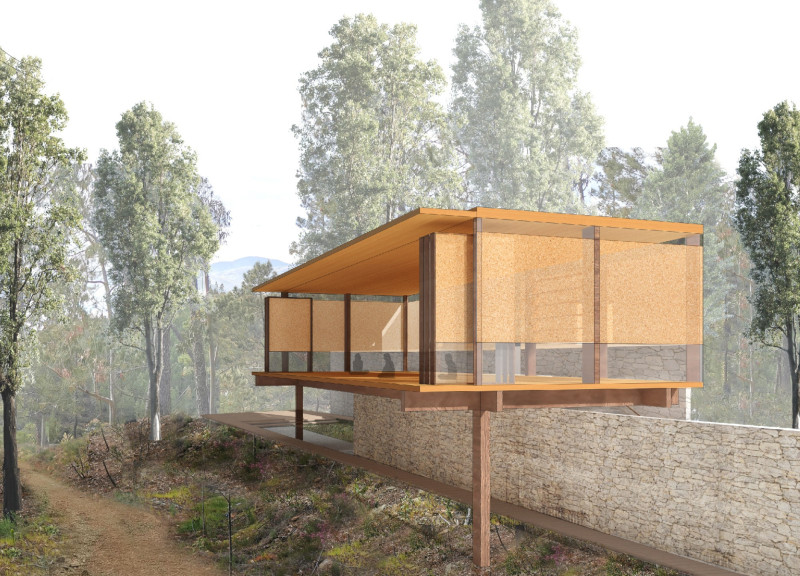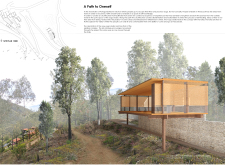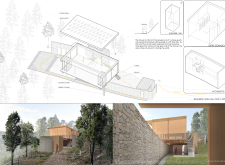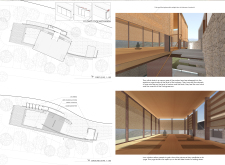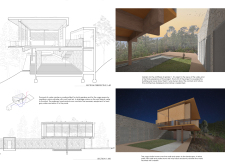5 key facts about this project
Set in the quiet mountains of Portugal, the design serves as a retreat focused on self-discovery through yoga and mindfulness practices. The concept, “A Path to Oneself,” emphasizes a connection with nature while guiding users from their busy lives into calm and reflective spaces. Through thoughtful design, it encourages personal growth in a serene environment.
Design Concept
Central to the design is a yoga studio elevated among the tree canopy. It represents both safety and freedom. The layout is intentionally crafted to alternate between confined spaces that offer reflection and open areas that provide liberation. People moving through the site experience a journey similar to wandering along a natural trail, fostering a sense of exploration.
Spatial Organization
A significant feature of the design is the shower area, which highlights the importance of cleansing before yoga practice. This space includes a glass wall that creates views of the surrounding nature, bringing the outdoors inside. This design decision helps to strengthen the user's connection to the environment, enhancing their overall experience as they prepare for practice.
Materiality and Sustainability
The project uses local materials such as stone, terracotta, and brick to ensure it fits well within its context. Each material was selected for its relevance to the surrounding culture and ecology. These elements contribute to the overall appearance and play an important role in making sure the structure aligns with its natural setting.
Water Features
Water features are integrated into the design, underscoring a commitment to sustainability. A thoughtfully placed pool serves as a cooling element while also improving the local microclimate. This feature is designed to manage gray water efficiently, reflecting an awareness of resource conservation.
The yoga studio overlooks the landscape, inviting individuals to immerse themselves in the tranquility of nature. This design choice allows for a contemplative experience, encouraging deeper connections with the environment and self during yoga practice.


